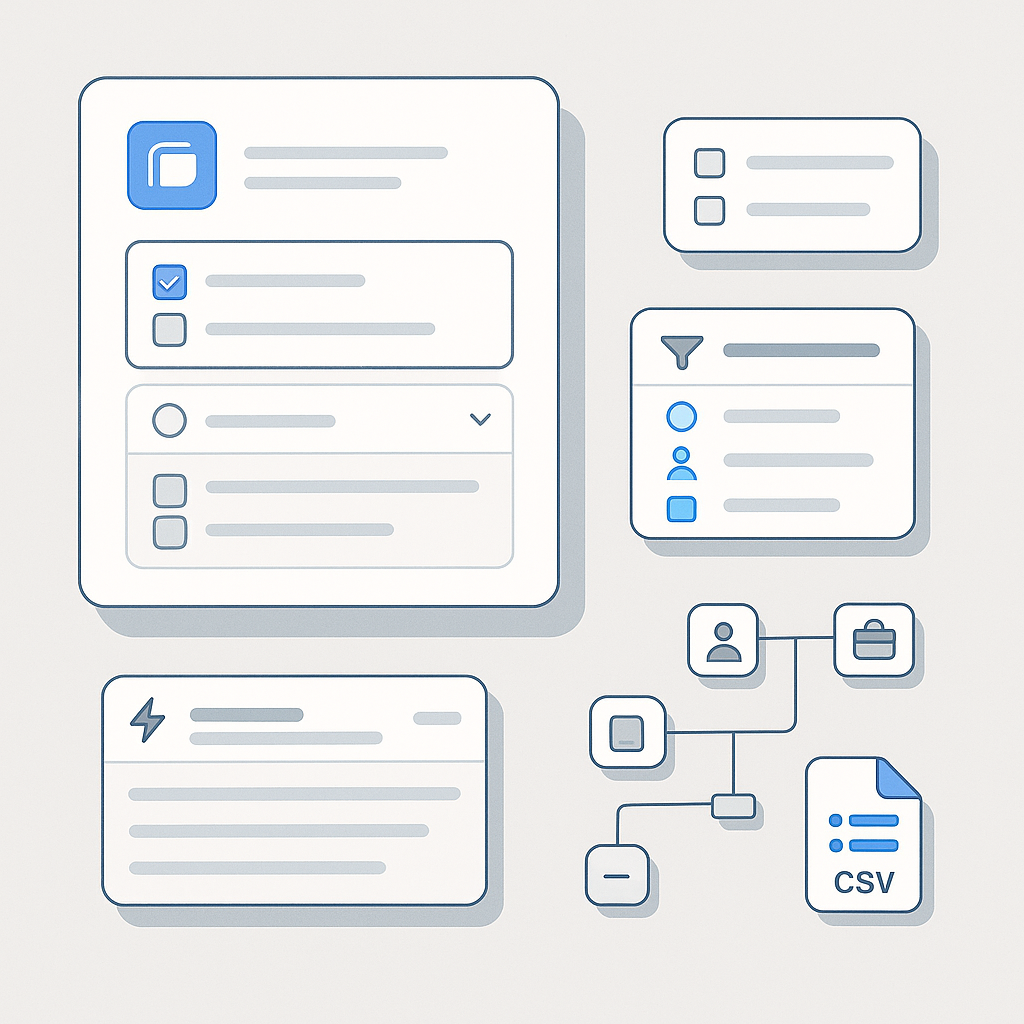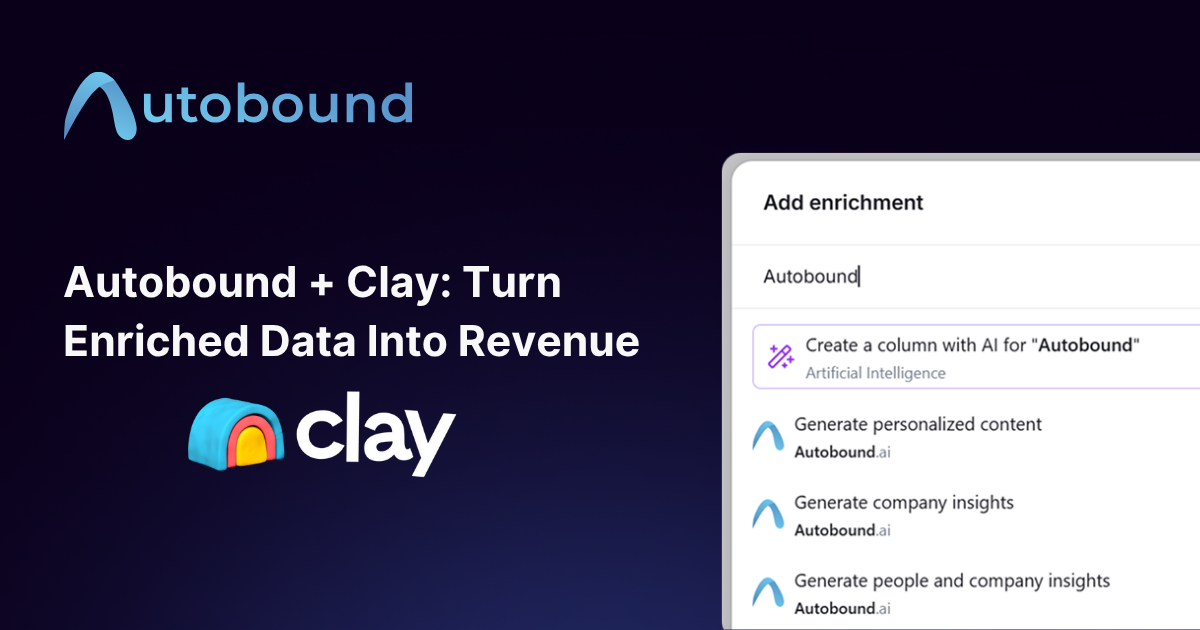Let's set the stage: you're in the final act of closing a major B2B deal. Your internal champion, practically a product evangelist at this point, has been your biggest cheerleader. But just as you reach for the champagne, the deal hits a wall. The culprit? You underestimated the influence of the Solutions Consultant.
See, in the complex world of B2B, where decisions involve more stakeholders than a Hollywood blockbuster, it's easy to fixate on the end-users and decision-makers. We forget about those critical gatekeepers, the unsung heroes who can make or break a deal: the Solutions Consultants.
These aren't just tech-savvy folks in the back office. Solutions Consultants are trusted advisors, bridging the chasm between your product's features and the client's bottom line. They evaluate, they implement, they ensure smooth sailing during adoption. And their inboxes? Flooded with generic sales pitches that blur together like a bad PowerPoint presentation.
That's why you need a game plan, a strategic framework to understand these individuals, craft emails that cut through the noise, and ultimately, turn their influence into your win. This guide is that framework. Buckle up.
Decoding the Solutions Consultant: Who They Are and What They Care About
Before you can sell to them, you have to get them. While their titles might be a mouthful – Solutions Consultant, Sales Engineer, sometimes even part of Customer Success – their core function is elegant in its simplicity: solve the client's problems. They're the architects of successful implementations, the ones who ensure your product isn't just purchased, but actually delivers.
So, what keeps them up at night? What makes their eyes light up in a meeting? It's not about dazzling them with jargon or feature lists. Solutions Consultants crave practicality. They're drawn to solutions that are implementable, scalable, and most importantly, drive a clear ROI. Remember, they're judged on their recommendations – they need to know your product won't make them look bad.
Going Beyond the Surface: Crafting Messages that Resonate
Imagine this: you're at a networking event, and someone walks up to you, spewing technical jargon you barely understand. Do you feel engaged? Probably not. It's the same with Solutions Consultants. Ditch the buzzwords, the marketing fluff, and speak their language: the language of real-world impact.
Instead of selling features, sell solutions. Frame your product as the answer to their clients' specific pain points. Don't just tell them it's effective – show them. Case studies, data points, quantifiable results – these are your weapons of choice. Remember, consulting is an industry with high attrition rates, often reaching 15-20% annually, so consultants are always looking for ways to prove their value and secure their positions (source). Your product's success is their success – make that connection undeniable.
Mastering the Art of the Email: Tailored Templates for Every Stage
Email. It's the workhorse of B2B, but even in the age of instant messaging, a well-crafted email can be a thing of beauty. However, when targeting Solutions Consultants, generic blasts are like throwing spaghetti at the wall – messy and ineffective. You need to tailor your messages, personalize your approach, and demonstrate a deep understanding of their world.
1. The Initial Outreach: Pique their Interest
First impressions matter. Your subject line is your email's headline – it's got to be compelling enough to break through the clutter. Think benefit-driven and hyper-relevant to their clients' industries. Something like, "Helping [Client Industry] Solve [Pain Point] with [Your Solution]" immediately positions you as a potential ally.
Now, the body copy. This is where you showcase your understanding of their world. Start with a relevant insight, something that demonstrates you're not just blindly emailing. "I recently read an article about the challenges [Client Industry] businesses are facing with [Pain Point]..." See? You're on the same page.
Then, seamlessly transition into how your solution addresses those challenges. Keep it concise, impactful, and always, always quantify your claims. End with a clear call to action – a simple question that invites a response.
Here's a template to get you started:
Subject: Streamlining [Client Industry] Workflows for Increased Efficiency
Hi [Solutions Consultant Name],
I came across your profile on LinkedIn and was impressed by your experience helping [Client Industry] companies optimize their operations.
At [Your Company], we're helping businesses like [Relevant Client Example] streamline their workflows and improve efficiency with our [Solution]. In a recent case study, we helped them achieve [Quantifiable Result] in just [Timeframe].
Would you be open to a quick call next week to discuss how we could help your clients achieve similar results?
Best regards,
[Your Name]
2. The Follow-up Email: Provide Value and Stay Top-of-Mind
Silence doesn't always mean "no." Sometimes, it just means your email got buried under a mountain of other priorities. A well-timed follow-up is your chance to resurface and provide genuine value.
Wait a few business days, then send a follow-up that's short, sweet, and helpful. Reference your previous email, reiterate the value proposition, and then, here's the kicker – share a relevant piece of content. This could be an industry report, a case study, even a blog post that tackles their clients' pain points. "I thought you might find this article on [Relevant Trend] impacting the [Client Industry] space insightful..." See? You're not just selling, you're a resource, a valuable connection.
Here's a sample follow-up:
Subject: Re: Streamlining [Client Industry] Workflows - Quick Follow Up
Hi [Solutions Consultant Name],
I wanted to follow up on my previous email about how [Your Solution] can help [Client Industry] businesses like your clients overcome [Pain Point].
I thought you might find this article particularly interesting: [Link to Relevant Article]. It discusses the growing need for [Solution/Benefit] in the [Client Industry] sector.
Let me know if you'd be interested in exploring this further. I'm happy to schedule a brief call at your convenience.
Best regards,
[Your Name]
3. Post-Meeting Email: Reinforce Value and Next Steps
You aced the meeting. Great handshake, insightful questions, you even remembered their favorite sports team. But the work's not done yet. A post-meeting email is crucial for solidifying your message and outlining clear next steps.
Don't wait – send this within 24 hours while the conversation is still fresh. Start by thanking them for their time and summarizing the key takeaways. This shows you were listening, not just waiting for your turn to talk. Then, deliver on any promises you made – case studies, product demos, pricing information – attach them all.
Finally, and this is crucial, outline the next steps. Schedule a follow-up call, connect them with the right person on your team, offer a free trial – make it ridiculously easy for them to say "yes."
Here's a template to guide you:
Subject: Great Talking With You - [Your Company] Next Steps
Hi [Solutions Consultant Name],
It was a pleasure connecting with you earlier today. I enjoyed learning more about the challenges your clients are facing in the [Client Industry] space.
As promised, I'm attaching the case study that highlights how we helped [Relevant Client] achieve [Quantifiable Result] with [Your Solution].
I'm confident that we can provide similar value to your clients. Would you be open to scheduling a follow-up call next week to discuss potential solutions in more detail?
Best regards,
[Your Name]
4. Handling Objections: Addressing Common Concerns
Objections are like speed bumps – annoying, but surmountable. Solutions Consultants are analytical by nature, so be prepared to address their concerns head-on with data and empathy.
A common one: "I'm not sure if this is the right fit for my clients right now." Acknowledge their concern, then hit them with a relatable anecdote. "I understand. Every client is different. However, many of our most successful clients in the [Client Industry] space initially had similar concerns..." Then, share a case study that mirrors their situation.
Another classic: "We're already working with a competitor." Don't panic. Instead, turn it into a learning opportunity. "That's helpful to know. What are some of the key factors you consider when evaluating solutions in this space?" Their answer reveals their priorities, allowing you to tailor your pitch and highlight your unique strengths.
Building Relationships That Last: Multi-Channel Engagement Strategies
Email is just the tip of the iceberg. To truly build lasting relationships with Solutions Consultants, you need a multi-channel approach that's like a well-coordinated symphony.
LinkedIn is your networking haven. Connect with them, engage with their content, share insightful articles – become a familiar face in their digital world.
Industry events are your chance to shine offline. Conferences, webinars, roundtables – these are breeding grounds for valuable connections. Attend, participate, and don't be afraid to strike up conversations.
Content marketing is your secret weapon. Create high-value resources tailored to their needs – implementation guides, ROI calculators, industry reports – and share them generously. Become a trusted source of information, and they'll be more likely to trust you with their clients' business.
And never underestimate the power of a good referral. Encourage your happy clients to spread the word – a personal recommendation can work wonders.
Data-Driven Insights: Analyzing and Optimizing Your Efforts
In the age of data, intuition only gets you so far. To truly master the art of selling to Solutions Consultants, you need to track your progress, analyze the numbers, and constantly refine your approach.
Monitor your email metrics like a hawk – open rates, click-through rates, conversion rates – these are your bread crumbs to success. Identify what's working, what's falling flat, and adjust accordingly.
Track how your outreach translates into tangible results – meetings, demos, deals. This is the ultimate measure of your success.
And most importantly, establish a feedback loop. Talk to your sales team, talk to the Solutions Consultants themselves – their insights are invaluable. What resonated? What fell flat? What could you have done better? This constant feedback loop is your key to continuous improvement.
Winning with Solutions Consultants: A Partnership for Success
In the intricate dance of B2B sales, Solutions Consultants are your partners, not just your targets. By understanding their world, their challenges, their motivations, you can transform your outreach from a sales pitch into a valuable collaboration.
Remember, it's not about pushing your product – it's about solving their clients' problems. Embrace a consultant-centric approach, and you'll find that the best deals are the ones where everyone wins.
About Autobound
Autobound's leading AI-powered platform delivers 350+ unique insights for go-to-market teams from financial filings, social media activity, 35 news events, competitor trends, job changes and more. Trusted by 7,000+ companies including TechTarget and validated by 220+ 5-star G2 reviews, we're unlocking hyper-personalization at scale, with native integrations for Salesloft, Outreach, and more. Leverage our developer-friendly API, try our Chrome extension, try our platform free, or contact our team to eliminate guesswork and drive measurable growth →
Built with love in San Francisco, CA




